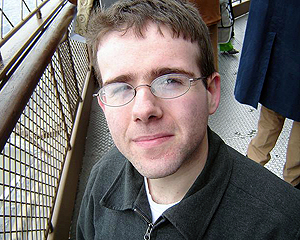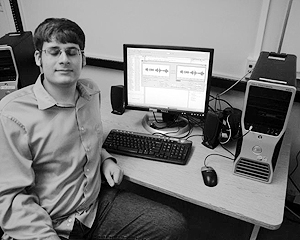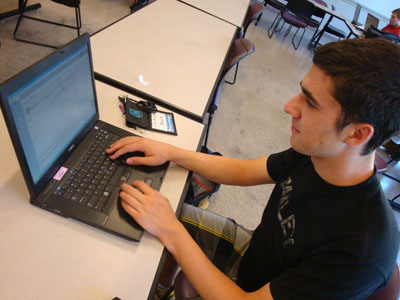Team Bio: Shaun Kane (AccessComputing News - November 2010)


In summer 2009, a dozen students attended a five-day Web Accessibility Workshop to learn how to evaluate the accessibility of websites and computer applications. Wendy Chisholm was the instructor. The students spent time discussing what it means for technology to be accessible and developed a set of criteria to measure the accessibility of a website. After measurable criteria were determined, the students learned about a variety of tools that are used to determine accessibility.
The Alliance for Access to Computing Careers (AccessComputing) has funds available to support training, experiential learning, and information technology (IT)-related activities nationwide. The goal is to increase the number of people with disabilities, including post-9/11 veterans, successfully pursuing computing careers.

Hi, I'm Jason. Currently, I am pursuing my bachelor of science degree in information technology, with a concentration in web and database integration at Rochester Institute of Technology (RIT). As a part of my degree, I am required to complete three internships. Since I have accepted a fourth internship, I expect to graduate in spring 2011.

Students with disabilities:
Recently, I presented "Computing for Everyone" at two events for high school computer science teachers: the Computer Science Teachers Association (CSTA) annual meeting and the CS4HS summer workshop.
Several participants in the AccessComputing project, including three AccessComputing Team members, presented at the Technology and Disability in the Developing World conference held at the University of Washington (UW) this fall. The presentation was coordinated through Change, a UW group that explores how technology can improve the lives of underserved populations in the developing world.
Conference topics included the following:
Youth Slam is a popular summer event hosted by the National Federation of the Blind. At Youth Slam, high school students with visual impairments are engaged in challenging activities designed to build confidence and increase science literacy. At the 2007 and 2009 Youth Slam events, teams from the University of Washington offered instant messaging (IM) chatbots as a computer science track topic, funded by an AccessComputing minigrant. An IM chatbot is a program that can send and receive instant messages from a human.
Youth Slam—an annual, week-long academy for students who have visual impairments—was held this summer at the University of Maryland. Youth Slam is sponsored by the National Federation of the Blind and its goal is to encourage students with visual impairments to seek out and explore careers in the fields of science, technology, engineering, and math. Attendees participated in a number of activities over the course of the week and were mentored by adults with visual impairments.